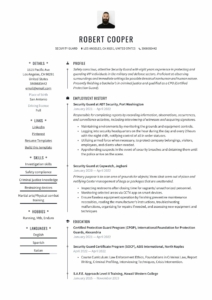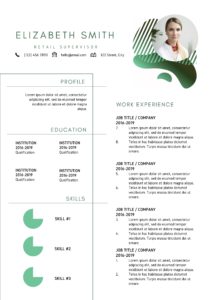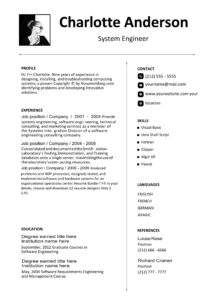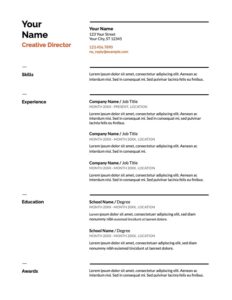For anyone wishing to enter into the social work field, or any field for that matter, a resume is a testament to your skills and abilities.
A family case worker is a very specific career that requires one to be not only trained and educated to deal with families and children but also passionate about working with the youth and their families. Their responsibilities vary — but they usually revolve around assessing family situations and acting as a liaison between the client and their corresponding health, legal, and financial services.
Whether this is your first entry-level job or you're looking to switch fields, here are some tips for writing an effective resume as an incoming family case worker.
1) Include all relevant experience, including volunteer work
Naturally, your educational history should be at the top of your resume. However, that is not all you have to include. Highlight relevant experience from your time as a student. Did you work as a camp counsellor? Mention it in your resume.
Have you previously acted as a mentor for incoming elementary students? Include that as well. By adding your volunteer work as a child-care worker or any other experience involving children, you're emphasizing that you have the personal qualifications necessary for working with families.
2) Include any degrees or certifications
In a social work career track, having a degree is indicative of your commitment and theoretical expertise to the field. Whether you have a degree in sociology, psychology, or another social science, be sure to include it on your resume. Highlight any important classes you had as well if you're looking to break through a more specialized field within this social sector.
You can also consider adding any certifications you may have earned through working with children, families, abuse victims or seniors. If you don't have the time to pursue long-term education, you can also find a plethora of counselling courses online to equip you with the knowledge and skills to flourish in this industry which you can study at your own pace.
Don't know where to start? Websites like TSA have a counselling courses to help kickstart your career as a family case worker.
3) Use action words in your resume summary
The best resumes are brief but to the point. Keep your bullet points succinct to highlight only the most important information. Instead of including lengthy descriptions for each job you have held, group them into categories that showcase your experience with children or families.
You can do this by including a resume summary that highlights your experience in the specific field. For example, if you have held several jobs where you've been responsible for children or families, highlight action words such as “trained,” “counselled,” and “supervised” to let recruiters know about your experience.
4) Keep consistent formatting
A good rule of thumb for your resume is to maintain cleanliness and simplicity over everything. Employers receive dozens, if not hundreds, of resumes on a daily basis so you want to ensure that the information you're trying to put in there gets acknowledged and not skimmed over.
Start by typing your name and contact information at the top of your resume. You can also include other relevant information next, like major experience gained or coursework completed, to state your case before delving into an extensive work history. You don't have to try anything fancy like adding self-ratings and too many colours. Just stick with the basics and let your work experience speak for itself.
5) Proofread and get second opinions
It may be easy for you to forget about a typo in your resume, but a recruiter won't. Proofreading is crucial in ensuring that employers read your resume and call you in for an interview.
There are no excuses for spelling or grammatical errors when a quick spellcheck can save you from negatively impacting your chances of getting a job. Thankfully, there are proofreading extensions out there like Grammarly to help save any errors you might've otherwise missed.
Aside from that, it also won't hurt to have a second party take a look at your resume before you submit it. A friend, family member or even a professional in the industry can help identify the good and the bad of a resume, and offer suggestions that may help polish your resume further.
6) Tailor your resume to each job application
Sending out the same resume for every job application that you send out is the quickest way to get passed over. Employers are looking for specific things in candidates and your resume should be tailored accordingly.
One way to do this is by keeping a running list of what you're applying for to ensure that your resume portrays the skills you have that fit each specific job. The more closely related your resume is to the job application, the better your chances are of getting called in for an interview.
7) Mention your awards and accolades
Finally, don't forget to include any awards or accolades that you've received. Recognition awards from charity work, school counselling and the like can help bolster your resume and show your drive, which can help you stand out against other candidates.
You'll find that these awards can make an enormous difference in getting your foot in the door for an interview, but always maintain a humble disposition and don’t hinge your worth to the organisation solely on that.
Employers are looking not only for candidates with solid work experience but candidates with the right personality that they’d believe would fit in well within their organization.




